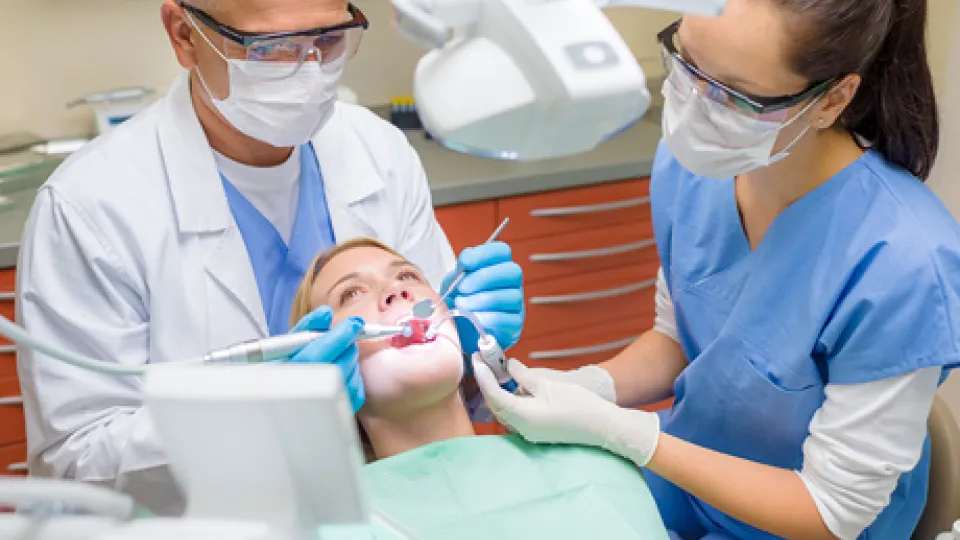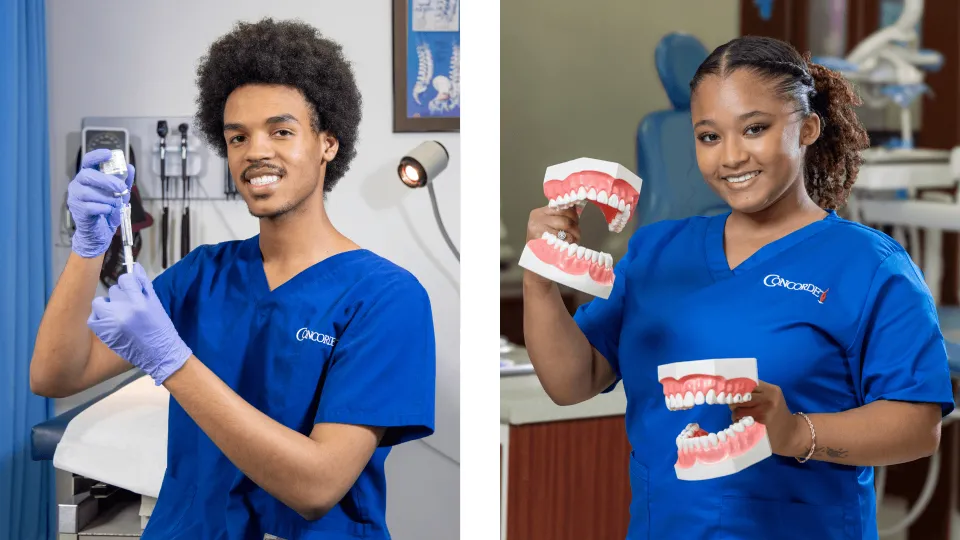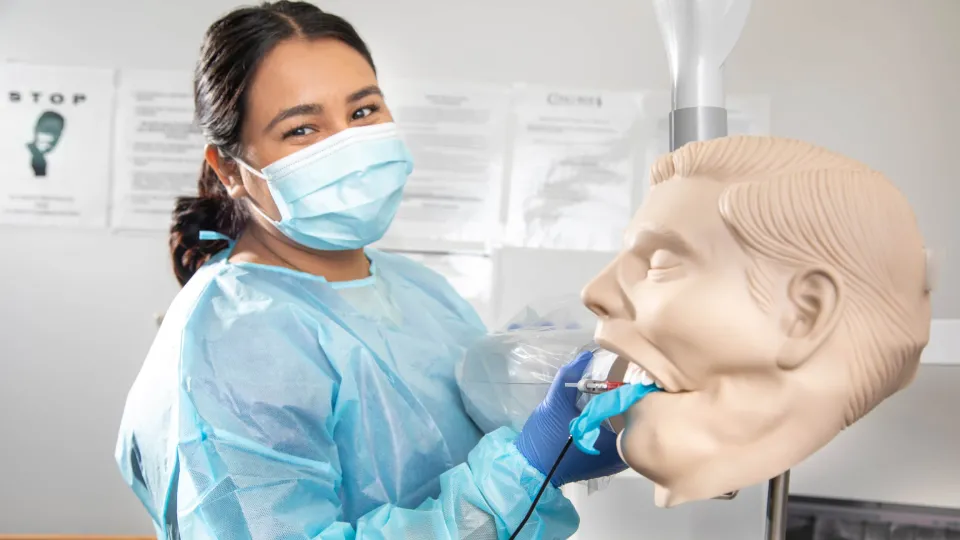
A day in the life of a dental assistant
Dental assistants are on the front line of patient care in a dental office, assisting dentists during exams and procedures, and ensuring patients are comfortable and informed of any treatments and/or treatment plans. Individual dental offices vary in scope of responsibility, but in general, duties can include:
- Sterilizing instruments
- Processing X-rays
- Preparing patients for treatment and surgery
- Managing patient charts
- Scheduling appointments
- Completing insurance forms
Here are a few frequently asked questions
For those with a natural ability and desire to put others at ease, a career in dental assisting might be the right professional path. Beyond a good chairside manner, dental assistants are trained for a broad range of support functions in a dental office setting, which requires not only the right personality but a formal career education as well.
Where can dental assistants work?
Dental assistants work in a variety of environments, including solo dental practices and group practices, public health dentistry, hospital dental clinics, and many other areas. There is also the option to shape the future for others interested in this field through teaching opportunities at vocational schools.
What is the career outlook?
According to the Bureau of Labor Statistics, employment in the field of dental assisting is expected to increase by 25% between 2012 and 2022. This is much faster than the average for all other occupations.
What are the rewards and challenges of this career field?
For those with the right personality and skill, dental assisting can be highly satisfying. Dental assistants are able to work with their hands and their minds on a daily basis, in a highly social atmosphere, enjoying a highly variable routine. For those who don't enjoy variety or customer/client interaction, this career field may not be ideal.
Education and training: What will I need?
Increasingly, dentists hire assistants with formal training. There are a couple of education and training paths leading to a career in dental assisting, and these paths are among the fastest for breaking into the healthcare field. These paths include Associate degree and certificate programs that can be completed in only a few months.
Is dental assisting right for me?
Dental assisting can be challenging and rewarding on a daily basis for those who possess the right personality traits and the right training.
To learn more about dental assisting read the following resources and see if becoming a dental assistant is the right career path for you.
/dental-programs/dental-assistant
www.bls.gov/ooh/healthcare/dental-assistants.htm
www.dentalassistant.org/
www.ada.org/en/education-careers/careers-in-dentistry/dental-team-careers/dental-assistant
Take The Next Step Towards a Brighter Future
Interested in learning more about our Dental Assistant program?
We have a Concorde representative ready to talk about what matters most to you. Get answers about start dates, curriculum, financial aid, scholarships and more!







